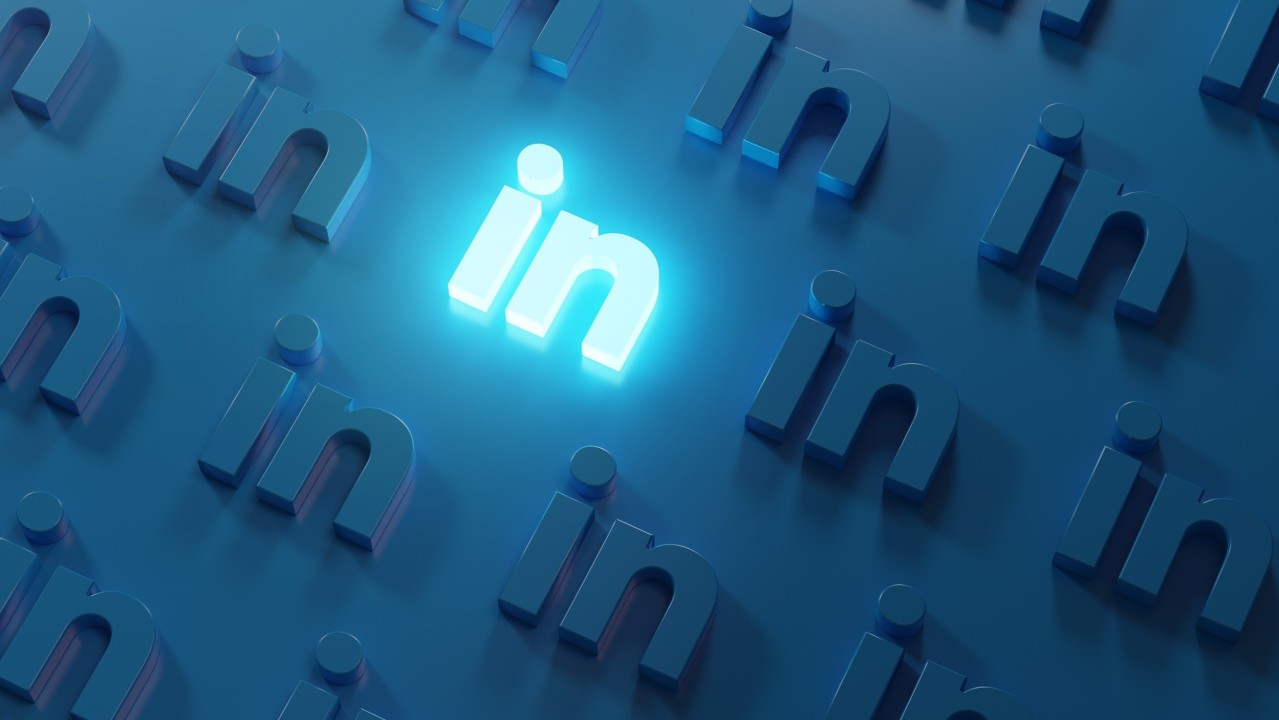News
Unlocking Advanced Marketing Automation with Agency Expertise
Marketing automation has emerged as a powerful tool to achieve these goals, allowing businesses to scale their marketing efforts without a proportional increase in workload. However, unlocking the full potential of marketing automation requires a blend of technical knowledge, strategic insight, and a deep understanding of customer behaviour — qualities often best provided by specialised digital marketing agencies.
In this article, I explore how digital marketing agencies leverage advanced marketing automation tools to streamline operations and enhance customer journeys.
What is Marketing Automation?
Marketing automation refers to the use of software to automate repetitive marketing tasks. This can include email campaigns, social media scheduling, lead nurturing, segmentation, and more. The ultimate goal of marketing automation is to enhance the efficiency of marketing processes, allowing businesses to engage with their audience in a personalised and timely manner, at scale.
By using data-driven insights, businesses can create customised customer journeys that adapt to the behaviour and needs of each individual. This ensures that marketing efforts are not only more efficient but also more effective, as they are tailored to drive conversions and build customer loyalty.
The Role of Digital Marketing Agencies
While marketing automation tools offer a range of capabilities, maximising their potential requires specialised knowledge. Many businesses, especially small to medium-sized enterprises (SMEs), lack the in-house expertise to effectively manage these tools. This is where digital marketing agencies come in.
A marketing agency with expertise in automation can help businesses:
- Select the right tools: There are numerous marketing automation platforms available, each with its own strengths and weaknesses. Agencies help businesses choose the platform that best suits their needs, whether it’s HubSpot, Marketo, Pardot, or others.
- Implement and integrate systems: Simply purchasing a tool is not enough. Agencies ensure that the selected platform is properly integrated with the business’s existing systems, such as customer relationship management (CRM) software and data analytics tools.
- Create data-driven strategies: Agencies leverage data to craft customer-centric marketing strategies. This allows for more personalised customer journeys, which are proven to enhance engagement and conversion rates.
- Provide ongoing management and optimisation: Marketing automation is not a “set it and forget it” solution. Agencies continuously monitor campaigns, optimise processes, and adjust strategies based on performance data to ensure the best results.
Now, let’s delve deeper into how marketing agencies unlock the advanced potential of marketing automation and create streamlined operations and enhanced customer journeys.
1. Choosing the Right Marketing Automation Platform
There are numerous marketing automation platforms on the market, each with different features, price points, and capabilities. Choosing the right one for your business is crucial to its success. Digital marketing agencies often bring a wealth of experience in working with different platforms and can help businesses make informed decisions. Some of the most commonly used marketing automation platforms include:
- HubSpot: A popular all-in-one platform for inbound marketing, offering CRM, email marketing, and content management features.
- Marketo: Known for its robust lead management and scoring capabilities, Marketo is favoured by large enterprises.
- Pardot: A Salesforce product, Pardot excels in B2B marketing automation, with advanced lead nurturing and scoring capabilities.
- ActiveCampaign: Offers a blend of email marketing, automation, and CRM features, suitable for small to mid-sized businesses.
Agencies help businesses identify the platform that aligns with their specific goals, target audience, and budget. Furthermore, they ensure that the platform integrates seamlessly with existing systems, such as CRMs and eCommerce platforms, to enable smooth data flow and reporting.
2. Automating Repetitive Tasks and Streamlining Operations
A key advantage of marketing automation is its ability to reduce manual tasks, freeing up time for more strategic work. Agencies help businesses set up workflows that automate repetitive processes such as:
- Email marketing: Automating personalised email campaigns based on user behaviour (e.g., abandoned cart reminders, product recommendations, welcome emails).
- Lead nurturing: Creating automated sequences that guide leads through the sales funnel based on their actions and interests.
- Social media scheduling: Automating the publication of social media posts, ensuring a consistent presence across platforms.
- Customer segmentation: Automatically segmenting customers based on behaviour, preferences, and demographic data to enable targeted marketing.
- Reporting and analytics: Setting up automated reports that track the performance of marketing campaigns, providing insights without the need for manual data collection.
By automating these tasks, businesses can scale their operations without overwhelming their marketing teams. Agencies ensure that these workflows are set up correctly, optimised for performance, and continuously refined to reflect changing business needs.
3. Enhancing Customer Journeys with Personalisation
Personalisation has become a cornerstone of effective marketing, and marketing automation is the key to delivering personalised experiences at scale. Agencies leverage automation tools to create customised customer journeys that adapt to individual behaviours and preferences.
For instance, an agency might set up a marketing automation workflow that:
- Tracks user behaviour on a website or app (e.g., page views, clicks, downloads).
- Sends personalised content based on those behaviours (e.g., sending a follow-up email with relevant content after a user downloads a white paper).
- Nurtures leads by providing the right content at the right time, gradually moving them down the funnel.
- Scores leads based on their interactions with the business, ensuring that only qualified leads are passed on to the sales team.
- Re-engages lapsed customers through retargeting campaigns or special offers.
Through automation, businesses can deliver relevant, timely messages to their customers, increasing engagement and driving conversions. The ability to create these personalised journeys at scale is one of the most powerful aspects of marketing automation, and agencies excel in designing and implementing these strategies.
4. Lead Scoring and Qualification
Lead scoring is a critical component of marketing automation that helps businesses prioritise leads based on their likelihood to convert. Agencies can implement sophisticated lead scoring models that assign points to leads based on various actions (e.g., opening emails, visiting specific pages, downloading resources). The more engaged a lead is, the higher their score.
Agencies often work closely with sales teams to define what constitutes a “qualified” lead. Once a lead reaches a certain score, they are automatically passed to the sales team for follow-up. This ensures that the sales team is only focusing on leads that are ready to buy, improving both efficiency and conversion rates.
By continuously monitoring and refining the lead scoring model, agencies help businesses ensure that their marketing and sales teams are aligned, and that no valuable leads slip through the cracks.
5. Nurturing Leads Through the Funnel
Lead nurturing is the process of building relationships with potential customers throughout the buying journey. Marketing automation allows businesses to create drip campaigns that deliver targeted content to leads based on their position in the sales funnel.
Agencies design these campaigns to ensure that leads are consistently engaged, without being overwhelmed by too many messages. For instance, a lead who has just signed up for a newsletter might receive a welcome email followed by a series of educational emails about the business’s offerings. As the lead shows more interest, they might receive case studies, product demos, or special offers.
By nurturing leads in this way, agencies help businesses build trust and credibility, increasing the chances of conversion.
6. Data-Driven Decision Making and Continuous Optimisation
Marketing automation generates a wealth of data, providing insights into customer behaviour, campaign performance, and overall ROI. Agencies help businesses leverage this data to make informed decisions and continuously optimise their marketing strategies.
For example, an agency might analyse the performance of an email campaign to determine which subject lines, content, or call-to-action buttons generated the highest engagement. Based on these insights, they can refine future campaigns to improve results.
Moreover, agencies use data to perform A/B testing on different elements of a campaign (e.g., email design, landing page layout) to determine which version performs best. This iterative process of testing and optimisation ensures that marketing efforts are constantly improving, leading to better results over time.
7. Scaling Marketing Efforts
As businesses grow, so too do their marketing needs. One of the major benefits of marketing automation is its scalability. Agencies play a crucial role in helping businesses scale their marketing efforts by implementing systems that can handle larger volumes of leads, customers, and data.
For instance, an agency might help a business expand its marketing automation efforts from a single email campaign to a fully automated multi-channel strategy that includes email, social media, SMS, and web push notifications. By scaling marketing automation efforts, businesses can reach a wider audience without sacrificing personalisation or efficiency.
8. Integrating Marketing Automation with CRM Systems
One of the most powerful aspects of marketing automation is its ability to integrate with CRM systems. This integration allows businesses to track every interaction a customer has with the brand, from their first website visit to their latest purchase.
Agencies ensure that the integration between marketing automation and CRM systems is seamless, allowing for a unified view of the customer. This enables businesses to:
- Track customer journeys across multiple touchpoints.
- Deliver more personalised marketing messages.
- Ensure that sales teams have the information they need to follow up with leads.
- Measure the effectiveness of marketing efforts in driving sales.
By integrating marketing automation with CRM systems, agencies help businesses create a more cohesive and effective marketing strategy.
9. Cost Efficiency and Maximising ROI
Marketing automation tools can be a significant investment, but when used effectively, they provide a substantial return on investment. Agencies help businesses maximise their ROI by ensuring that automation efforts are aligned with business goals and delivering measurable results.
For example, an agency might help a business reduce customer acquisition costs by improving lead generation and nurturing efforts, or increase customer lifetime value by automating cross-sell and up-sell campaigns.
Furthermore, by automating repetitive tasks and optimising campaigns for performance, businesses can reduce waste and ensure that their marketing budget is being used as efficiently as possible.
Unlocking Advanced Marketing Automation
Marketing automation is a powerful tool that enables businesses to streamline their marketing efforts, enhance customer journeys, and drive better results. However, unlocking the full potential of marketing automation requires expertise and experience.
Digital marketing agencies play a crucial role in helping businesses implement and manage advanced marketing automation systems. From selecting the right platform to designing personalised customer journeys and continuously optimising campaigns, agencies provide the knowledge and resources needed to succeed in today’s competitive digital landscape.
By partnering with an experienced agency, businesses can not only streamline their operations but also create more meaningful, personalised experiences for their customers, ultimately leading to increased engagement, conversions, and long-term success.





The Ultimate Social Media Guide
With the ever-growing power of social media, we use the latest techniques, video, and animation software to craft eye-catching social media assets that make your brand pop. Our designers, wielding Adobe Creative tools, create distinctive animations and graphics to illuminate your brand story and highlight your products or services. Want a unique design? No problem – we also offer bespoke designs to match your brand aesthetic.